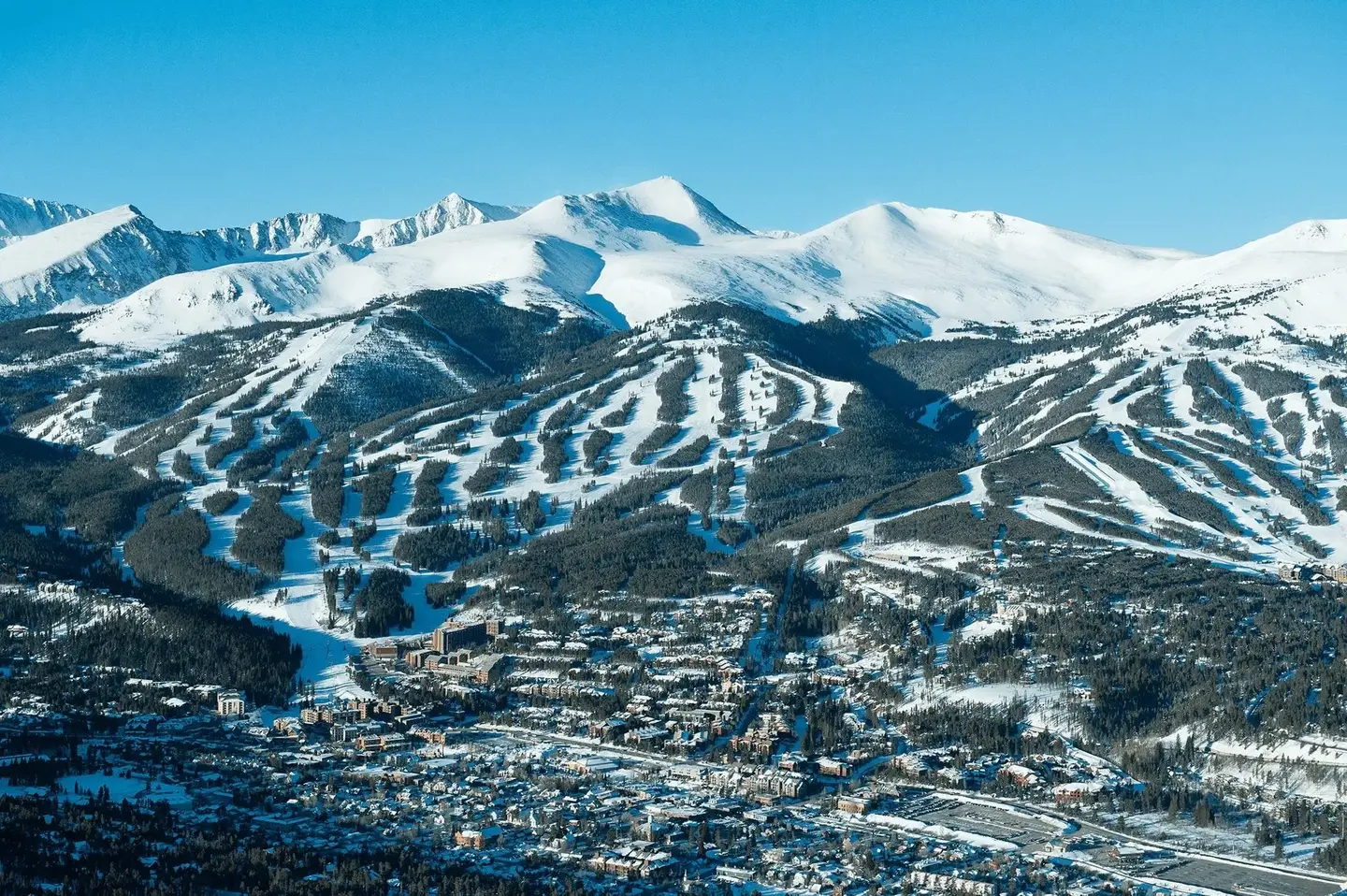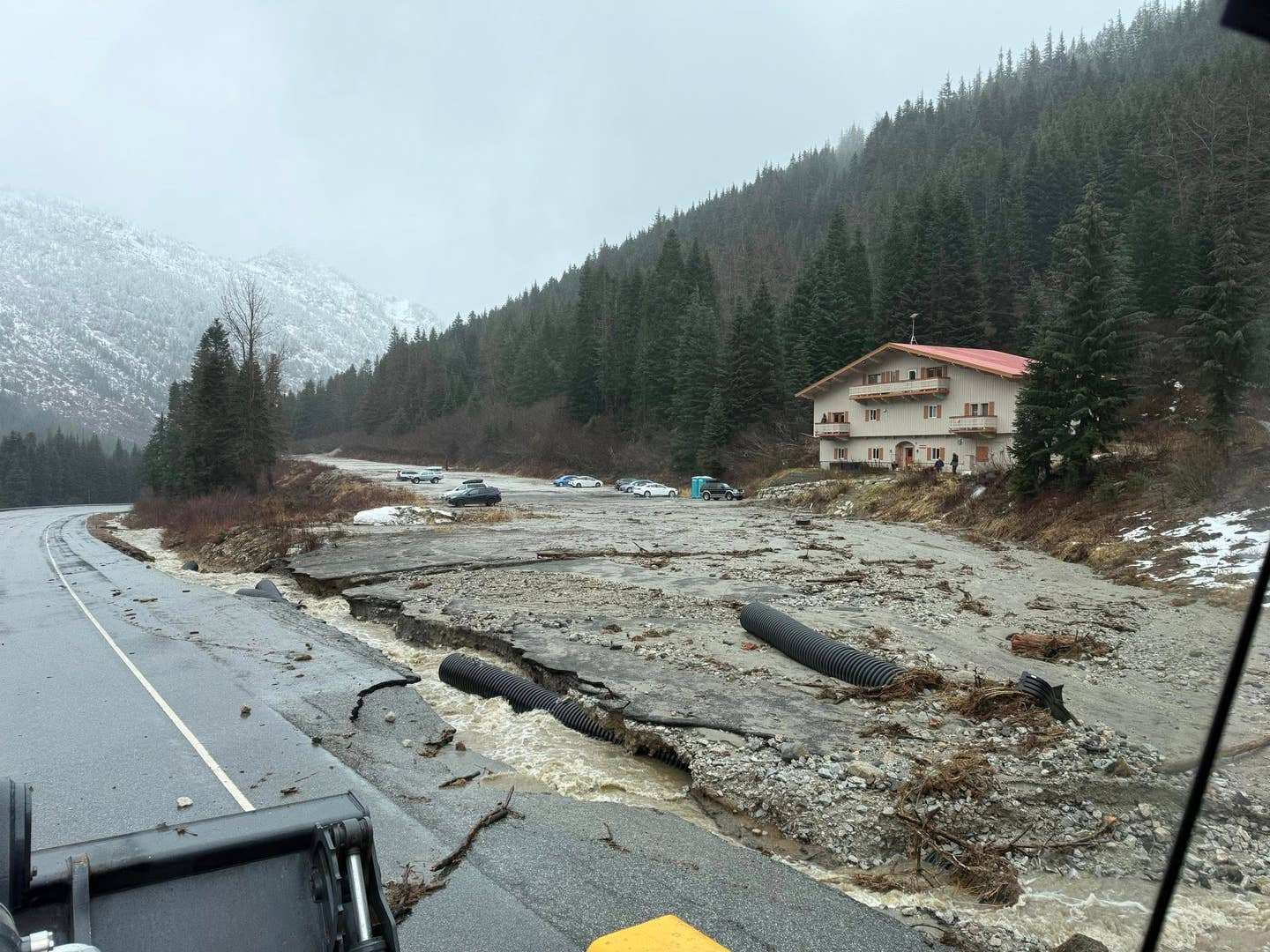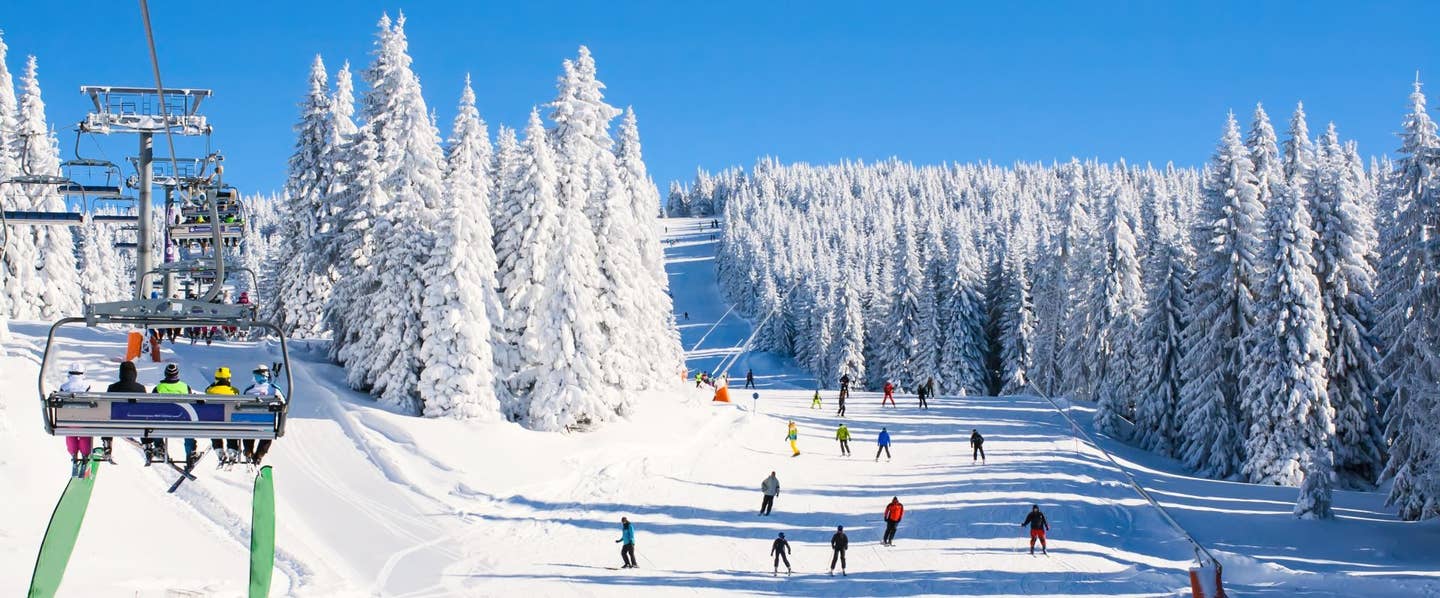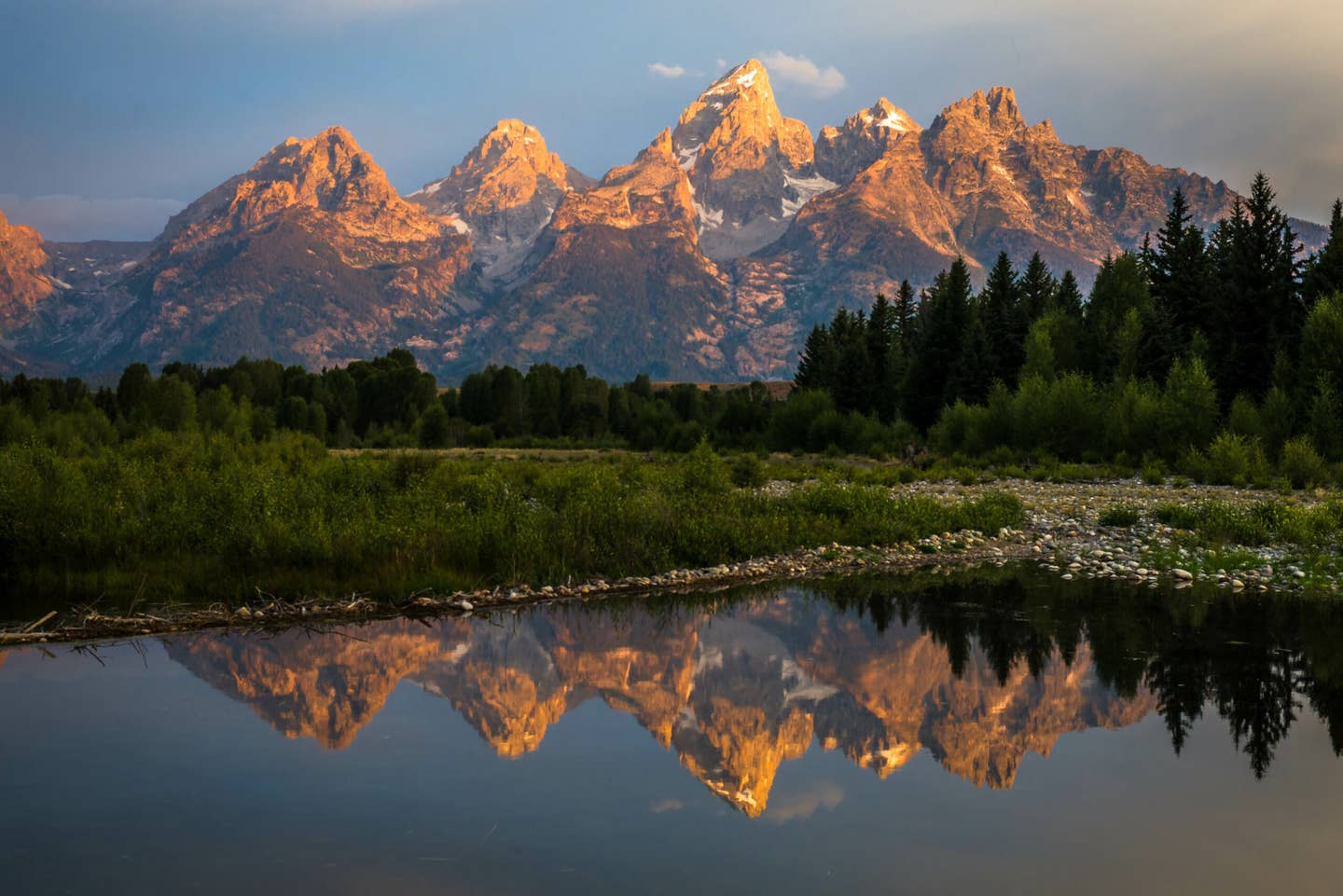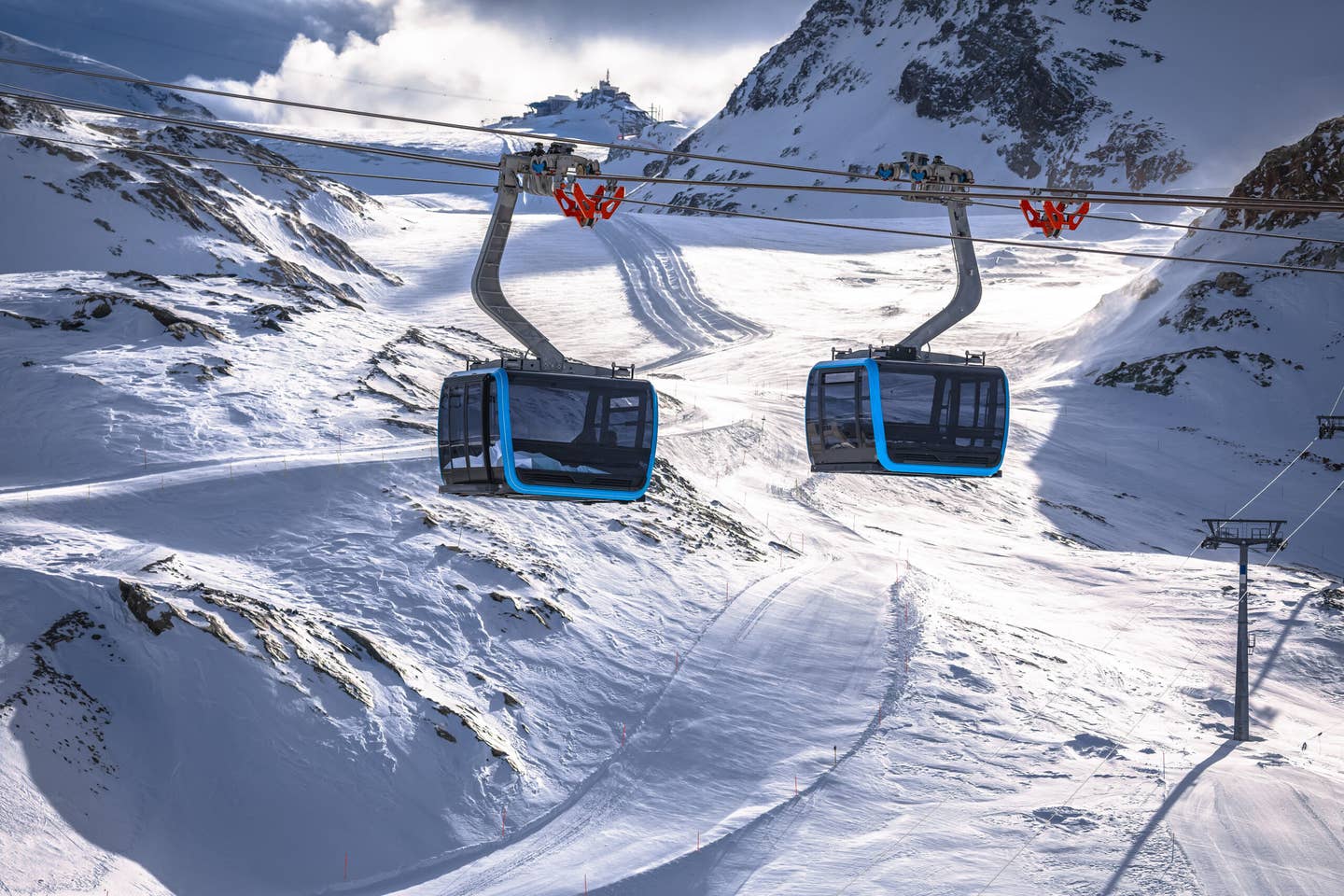

New Gondola Project Will Drastically Improve Access to Zermatt From Cervinia
Popular Stories
The Italian side of the Matterhorn Ski Paradise is set to undergo its most significant lift overhaul in decades, with a dramatic upgrade aimed at improving the connection from Cervinia, Italy, to Zermatt, Switzerland. Managed by Cervino S.p.A., this €200 million project, dubbed "Cervino – The One," will replace a cumbersome three-lift chain with a new, two-stage system, significantly enhancing access and capacity to the cross-border ski area.
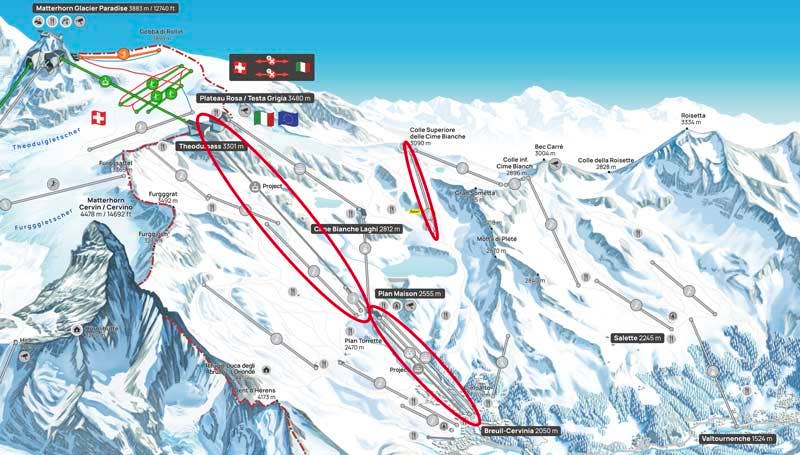
Currently, skiers and snowboarders on the Italian side face a three-stop journey to reach Plateau Rosà, where they can connect to Zermatt. This journey involves a six-person gondola or large cable car from Breuil-Cervinia, followed by two more cable cars. The new plan will streamline this entire process, cutting travel time from the bottom station at 2,050 meters to the top at 3,480 meters to just 15-20 minutes.
Sign Up for the TGR Gravity Check Newsletter Now
The centerpiece of the "Cervino – The One" project is the installation of two Leitner 3S Symphony gondolas. These modern cabins will each hold up to 30 people (24 seated, 6 standing), operating at a speed of 8.0 meters per second. This upgrade will nearly triple the hourly capacity from 1,250 to 3,000 people, a critical improvement for a notorious bottleneck that often keeps visitors on the Swiss side. The new lifts are designed to be more resilient on high-wind days, a common issue with the existing chairlifts in the area.
Beyond the lifts themselves, the three old stations at Breuil-Cervinia, Plan Maison, and Plateau Rosà will be replaced with new, state-of-the-art buildings. These facilities will include shops, bars, restaurants, and day care centers. A fast-track option at the mid-station will also be available for a direct connection to the top. While the project has been announced, a detailed construction calendar and firm opening dates are still to be released. The project is now moving into the authorization and procurement stages, with work expected to be phased over multiple summer seasons to avoid disrupting the peak winter season.
